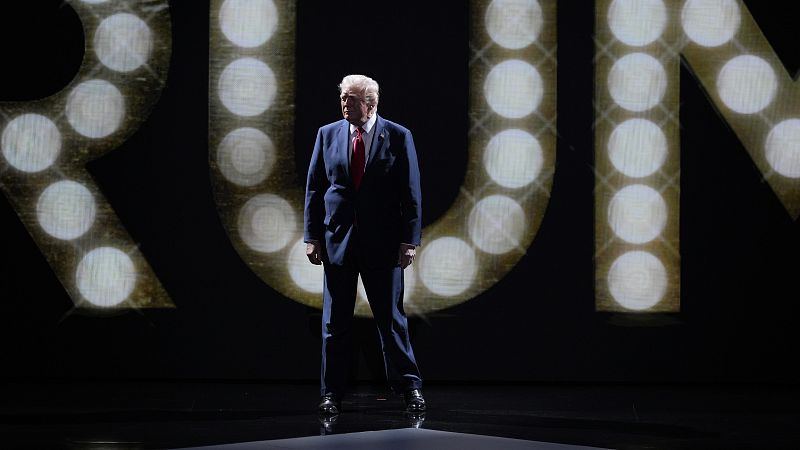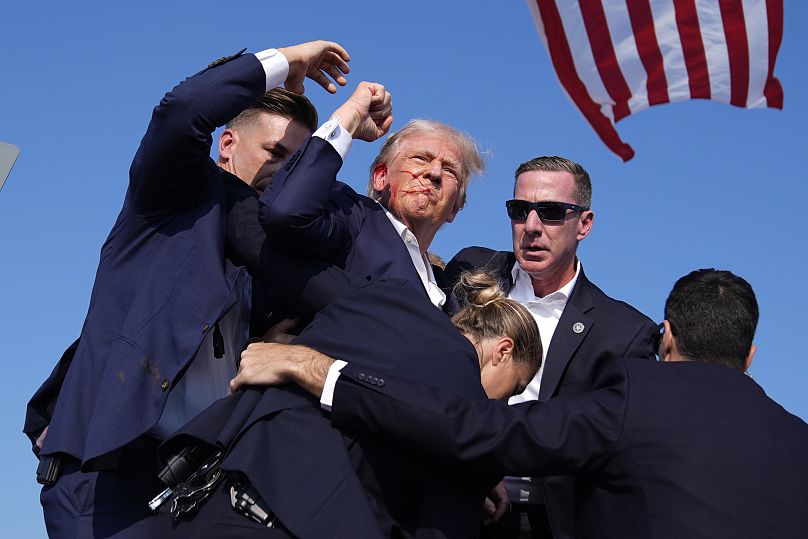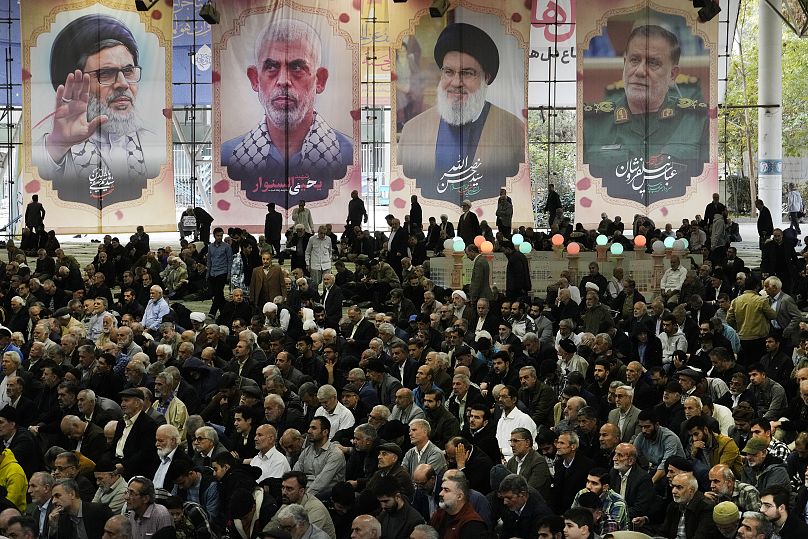Justice Department charges Iranian man over alleged plot to kill Donald Trump

The US Justice Department has charged an Iranian man in connection with an alleged murder-for-hire plot to kill Donald Trump before he was elected president.
Investigators learned of the plan to kill Trump from Farhad Shakeri, said to be an Iranian government asset who spent time in American prisons for robbery and who authorities say maintains a network of criminal associates enlisted by Tehran for surveillance and assassination plots.
Shakeri told investigators that a contact in Iran's paramilitary Revolutionary Guard instructed him in September to set aside other work he was doing and assemble a plan within seven days to monitor and kill Trump, according to a criminal complaint unsealed in federal court in Manhattan.
The official was quoted by Shakeri as saying that, "money’s not an issue."
Shakeri told investigators the official told him that if he could not put together a plan within the seven-day timeframe, then the plot would be paused until after the election because the official assumed Trump would lose and that it would be easier to kill him then, the complaint said.
The US government said Shakeri has not been arrested and is believed to be in Iran.
Lawyers for the two other defendants, identified as Jonathan Loadholt and Carlisle Rivera, did not immediately return messages seeking comment.
Iran's UN Mission also declined to comment.
Trump spokesman Steven Cheung said the president-elect was aware of the assassination plot and nothing will deter him, "from returning to the White House and restoring peace around the world."
Shakeri, an Afghan national who immigrated to the US as a child but was later deported after spending 14 years in prison for robbery, also told investigators that he was tasked by his Revolutionary Guard contact with plotting the killings of two Jewish-Americans living in New York and Israeli tourists in Sri Lanka.
The criminal complaint says Shakeri disclosed some of the details of the alleged plots in a series of recorded telephone interviews with FBI agents while in Iran.
The stated reason for his cooperation, he told investigators, was to try to get a reduced prison sentence for an associate behind bars in the US.
According to the complaint, though officials determined that some of the information he provided was false, his statements regarding a plot to kill Trump and Iran's willingness to pay large sums of money were determined to be accurate.
The plot, disclosed just days after Trump's defeat of Democrat Kamala Harris, reflects what federal officials have described as ongoing efforts by Iran to target US government officials, including Trump, on US soil.
"There are few actors in the world that pose as grave a threat to the national security of the United States as does Iran," Attorney General Merrick Garland said in a statement.
FBI Director Christopher Wray said the case shows Iran's "continued brazen attempts to target US citizens," and, "other government leaders and dissidents who criticize the regime in Tehran."
Iranian operatives also conducted a hack-and-leak operation of emails belonging to Trump campaign associates in what officials have assessed was an effort to interfere in the presidential election.
Intelligence officials have said Iran opposed Trump's re-election, seeing him as more likely to increase tension between Washington and Tehran.
Trump's first administration ended the landmark nuclear deal with Iran, re-imposed crippling economic sanctions and ordered the killing of Iranian general Qassem Soleimani, an act that prompted Iran's leaders to vow revenge.
Today



